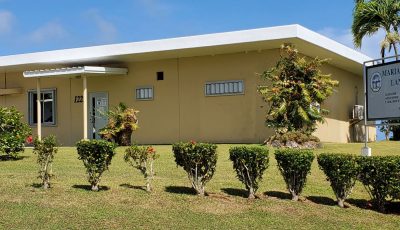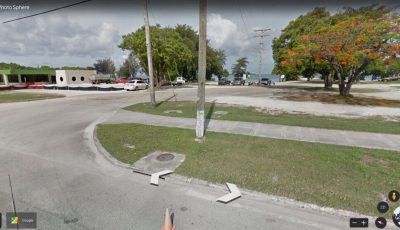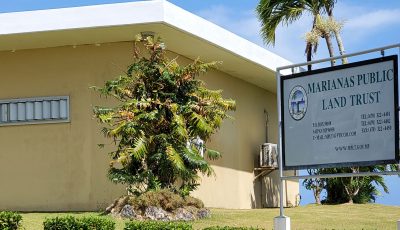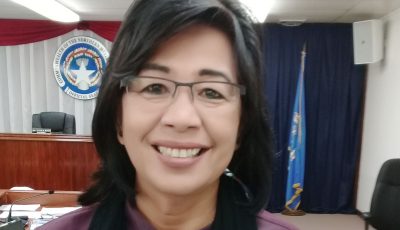DPL slams bill that seeks to abolish it
In an expected outcry, the Department of Public Lands is vehemently opposing a House bill that would abolish the department and replace it with a body outside of the Executive Branch—countering allegations that they say has misinformed the genesis of the bill.
House Bill 19-89 wants to abolish Public Lands—due to perceived failures in DPL’s management—and replace it with a Marianas Land Corporation with a board of trustees who would manage and control public lands in the Commonwealth.
In a letter Monday to House lawmakers signed by acting DPL secretary Patricia Rasa, she said DPL is meeting its constitutional, statutory, and fiduciary duties and mandates.
“There is no need to reinvent the wheel, or to create the additional bureaucracy and expense of a governing board,” said Rasa in the letter. “Management of public lands is an executive function, and I respectfully request that the Legislature defer to the governor in doing so.”
The House bill complains that DPL has been operating and making independent decisions on public lands without the presence, input, and advice of an advisory board, as mandated by the public law that created DPL.
Rasa said this concern is based on a misconception. She said the only specific topics that the DPL secretary is required to consult with the advisory board are a comprehensive land use plan and adoption of any homestead program.
“It is the secretary and the secretary alone who by law has been placed as fiduciary over public lands,” said Rasa.
Pete A. Tenorio is DPL secretary.
Rasa said the absence of a board does not hinder Tenorio in his responsibilities.
Further, DPL should not be made out to be the villain for something it has no control over—the absence of an advisory board, Rasa said, adding that they are powerless to establish one because the governor and the CNMI mayors appoint its members.
The DPL secretary has, in fact, repeatedly requested these appointments, she said, and the final member needed to launch the board is the governor’s appointee.
DPL’s pot of gold
Some House lawmakers have recently criticized DPL for depositing lease revenues in time certificate deposits, calling these accounts a “pot of gold” that should be rightfully remitted to the Marianas Public Land Trust as mandated by law.
However, Rasa said Monday that the accounts were “appropriate.”
DPL, she explained, collects security deposits from its lessees and must return these funds with interests when leases expire, or in cases when development or improvement mandated by the lease is completed.
She confirmed that these funds are held in term certificates of deposit and are not invested by MPLT, but this was appropriate, given they must separate these deposits from trust funds and make sure the funds are protected and not “comingled” with other funds.
She said certain funds are on deposit with Bank of Saipan and have been since 2004.
She said withdrawal of these funds are restricted as they are subjected to “Depositary and Non Withdrawal Agreement” stemming from the bank’s receivership issues in August 2004.
“The Department of Public Lands inherited these problematic accounts from its predecessor, [Marianas Public Lands Authority], and thus should not be criticized for their existence,” Rasa said. “We are making periodic withdrawals as permitted by our agreement, and such funds are then remitted to MPLT as mandated by the Constitution.”
Inconsistent lease policy
House lawmakers have also raised issue with what they describe as DPL’s “inconsistent treatment” of Kan Pacific Saipan, the owner of Mariana Resort & Spa lands—which are currently out for bid—calling the decision to seek competitive bids a complete change in policy and appears to accommodate new investors while sacrificing those that have been loyal and long term partners for years.
Kan Pacific itself—in a letter to DPL in October—reminded Tenorio of a timeline of negotiations between himself and the hotel for an extension of their lease, which happened to suffer “apparent interruption,” blamed on Best Sunshine International Ltd.’s pursuit of these properties.
Rasa, in her letter, admits that there have been inconsistencies in DPL’s approach in the past. However, she defends Tenorio, saying he has made great strides to normalize the management of public lands.
“Over the past 12 months [Tenorio] has tasked his staff to develop regulations governing the temporary and long-term use of public lands,” she said.
The regulations, she said, have been formalized, proposed, and published in the Commonwealth Register in November.
The proposed regulations include underwriting standards for commercial leases; regulating all uses and providing an enforcement mechanism to ensure compliance with standardized lease terms; ensuring that DPL receives a portion of revenue generated by all lessees of public lands; and establishing a minimum annual rent of 5 percent of market value of the lease property, among others.



























